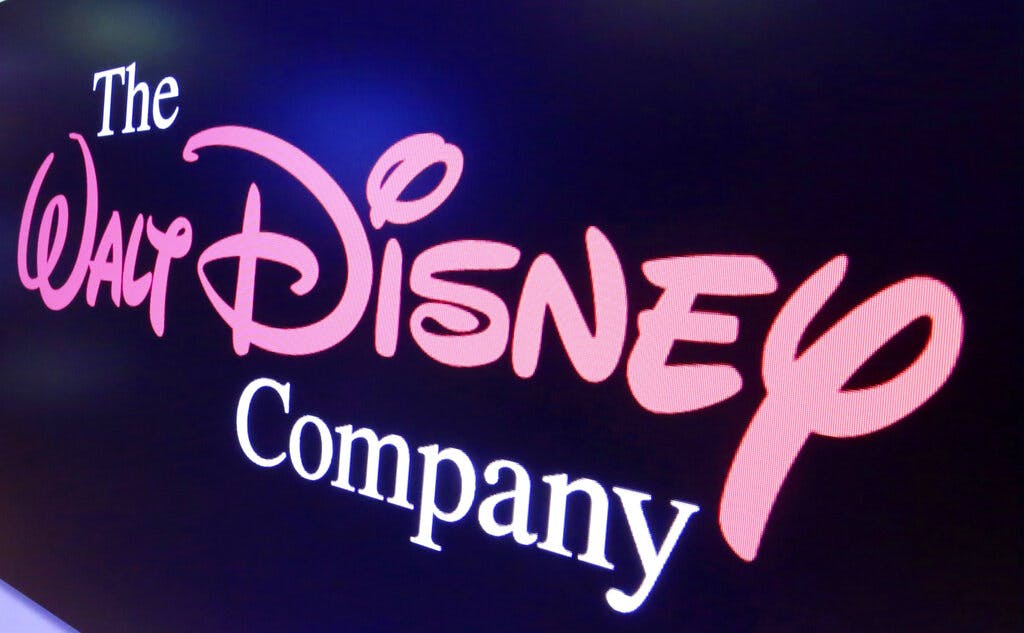China’s Communist Crocodile Eats Disney
Film studios have helped China build a domestic audience, and now China is producing films itself, ones that, like everything in the regime, serve the state.

Disney pushes politics hard at home but for years has edited objectionable content at the behest of Communist China. Now the company is learning the limitations of appeasement, and it’s a warning to other American studios.
Winston Churchill, as the United Kingdom’s first lord of the admiralty, said in a 1940 speech that everyone “hopes that if he feeds the crocodile enough, the crocodile will eat him last.”
Hollywood has been feeding the communist crocodile for years, removing LGBTQ characters, democratic themes about Hong Kong, and even details like the Taiwanese flag on Tom Cruise’s Maverick in “Top Gun 2.”
The Scottish thriller novelist Will Jordan in his YouTube film breakdowns, The Critical Drinker, points out how moviemakers slip a few seconds of the left’s agenda into scripts to push what he calls “The Message” in the West, while making censoring for China a snap.
Due to Sony’s ownership of “Spider-Man,” it fell to that company — not its Disney partners — to decide whether to bow to China’s demand to remove the Statue of Liberty from Spidey’s latest swing into theaters, 2021’s “No Way Home.” Sony refused, and the movie is a blockbuster anyway.
Metro-Goldwyn-Mayer, however, spent $1 million going through its 2012 “Red Dawn” remake in post production, changing flags on uniforms to North Korean from Chinese — which replaced the Soviet villains from the ’80s classic. The film tanked and MGM went bankrupt.
Disney hasn’t just edited Pixar cartoons and other films to appease China, either. It shot 2020’s “Mulan” in Xinjiang Province — ground zero for Beijing’s genocide of Uighur Muslims — drawing bipartisan condemnation from Congress.
No company has been happier to cash in on Movie Munich than Disney, which even eliminated an episode of “The Simpsons” from Disney+ for mentioning the 1989 Tiananmen Square massacre. A funny thing happened on the way to the red film forum, though: China’s censors stopped welcoming Disney flicks as soon as it learned to produce homegrown entertainment.
The author of “Red Carpet: Hollywood, China, and the Global Battle for Cultural Supremacy,” Erich Schwartzel, told the Clay Travis & Buck Sexton Show it feels like China has “ghosted Hollywood.”
“[A]s Xi Jinping has consolidated power,” he said, “there’s just been more of a turn inward, and I think there’s just been an overall greater skepticism about Western and outside influence.”
The latest Disney film to find itself banned is “Doctor Strange2,” with China objecting to a pan across a Manhattan newsstand carrying the Epoch Times, which opposes the regime.
Disney — having refused to cut 12 seconds of dialogue about a character’s lesbian mothers that got the film banned in Saudi Arabia and Egypt — couldn’t snip it for Beijing or it would have exposed itself as a toady. China refuses to relent.
Warner Brothers, faced with as similar problem, cut gay references from the new “Fantastic Beasts: The Secrets of Dumbledore,” but its time is coming, as it came for Disney after 2019’s “Avengers: Endgame.”
According to Deadline, after Covid-19 hit, Beijing began “blackballing” House of Mouse films including “Black Widow,” “Eternals,” “Venom: Let There Be Carnage,” “Spider-Man: No Way Home,” and “Shang-Chi and the Legend of the Ten Rings.”
“Shang-Chi” had been produced with the Chinese market in mind, heralding its lead character as the first Asian protagonist. The pandering failed when Simu Liu, the film’s star, was deemed to have insulted the country.
The Canadian actor recounted his parents telling “stories about growing up in Communist China where you had people dying of starvation,” saying they lived in the Third World. He was called a traitor to his race and the revolution.
For decades, Communist China has welcomed American corporations, studied their methods, and stolen their intellectual property, until it could ramp up production itself, causing the original companies to close.
Filmmaking is no different. Disney and other studios have helped China build a domestic audience, and now China is producing films itself, ones that, like everything in the regime, serve the state.
Disney is in no danger of going bankrupt like MGM, but as it continues to push a partisan agenda at home and alienate viewers, it can no longer rely on the Chinese consuming edited versions of its films to subsidize its culture war. The crocodile has lost its taste for Mickey and his friends.

